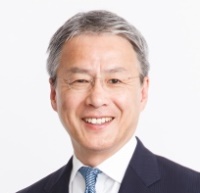
by Noriyuki Morimoto
As a principle of modern society, there can be no dictatorship of the wise, but only collective governance by ordinary people. The executive branch comprises ordinary people with specialized skills, while the supervisory branch consists of ordinary people with broad vision and dispassionate judgment, thereby eliminating the adverse effects of dictatorship as well as non-decision by an ignorant crowd.
However, you might ask: if an ordinary person has special expertise, wouldn’t this person be deemed an extraordinarily wise person? Shouldn’t we give wise people with specialized abilities greater authority in governance? And is not collective governance by ordinary people prone to non-determination of the ignorant?
In the real world, no one raises issues with governance, as long as it is successful, and the only time governance becomes an issue is when it fails. However, it is a logical fallacy to say that a scheme succeeds because it is functioning effectively and fails because it is flawed.
Under these social conditions, the collective governance of ordinary people does not work, because a group of ordinary people in fear of failure would not lead to any decision. Therefore, there are only two solutions. One is to incline toward sage rule, and the other is to devise mechanisms to enable decisions in the collective governance of ordinary people.
In short, the only issue is to make decisions. And to do so, we have no choice but to utilize the advanced knowledge of experts. This means that the highest decision-making body comprising ordinary people should proceed with the agenda in a way that respects the insights offered by expert personnel in the secretariat.
For example, when rejecting a proposal, the reason for the rejection should be clearly documented. Given that the minutes of the meeting are disclosed, it is not easy for a layperson to illogically reject a reasonable proposal based on professional expertise. The function of the highest decision-making body, despite its formally assigned role of making decisions, is not in effect to make professional judgments, but only to monitor and approve professional judgments from the dispassionate and neutral perspective that only an ordinary person can provide.
[Category /Investment Professional]

Chief Executive Officer, HC Asset Management Co.,Ltd. Noriyuki Morimoto founded HC Asset Management in November 2002. As a pioneer investment consultant in Japan, he established the investment consulting business of Watson Wyatt K.K. (now Willis Towers Watson) in 1990.

